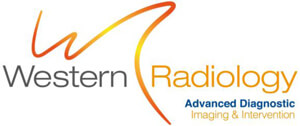CT Coronary Angiogram
CT Coronary Angiogram (CTCA) is a non-invasive diagnostic test designed to determine whether symptoms (commonly chest pain, also called angina) experienced by a patient is as a result of obstructive heart disease. Obstructive heart disease or Coronary Artery Disease (CAD) can be visualised and diagnosed in 3D by the use of CTCA. This is commonly shown as a narrowing or calcification of the coronary arteries that restricts blood flow to the heart. The high degree of sensitivity of CTCA enables our cardiologists to determine if coronary artery disease is implicated in your symptoms.
CAD can arise from a number of risk and lifestyle factors such as high cholesterol, smoking, hypertension, diabetes and family history of these and heart troubles.
CTCA is also often used in post-operative monitoring of heart procedures such as coronary artery bypass grafting and stenting.

Preparing for a CT Coronary Angiogram
For the most optimal and clearest scan images it is important to be relaxed and having as low of a heart rate as possible prior to coming in for your scan. It is therefore important that patients follow these guidelines on the day of their scan. We ask patients not to consume any tea (including herbal teas), coffee, cola, chocolate or other stimulants before the procedure. It is also important that you do not do any activities that will raise your heart rate significantly, this include vigorous exercise or strenuous activities. Our reception team will ask you a series of questions as part of the bookings process and ensure your individual circumstances accounted for.

Related Information
- Please arrive 1 hour prior to your stated scan time. PLEASE BRING A LIST OF ALL YOUR CURRENT MEDICATIONS.
- Upon arrival, a radiographer or nurse who will check your heart rate, and blood pressure. To ensure your heart rate is within the range required for high quality images, we may prescribe some medications (usually beta-blockers), which typically take 45-60 minutes to take effect.
- If you are aware that your heart rate tends to be high (>80 beats/minute), please contact us to arrange further assessment at least 3 days prior to your appointment.
- For the test itself, the technical team will place ECG dots on your chest and insert a cannula into your arm for the administration of iodine contrast. This contrast will assist in highlighting the heart arteries.
- The scan itself takes only 5-10 minutes, but is followed by a 30 minute wait in the recovery room. Patients should thus expect to spend 90 minutes or so in the clinic.
Once the scan has been completed, the images are reported in detail by both a radiologist and an imaging cardiologist. The results and images are then made available electronically to your referring physician.
Western Radiology Claremont – 1/278 Stirling Hwy, Claremont WA 6010
Western Radiology Madeley – Unit 1, 210 Wanneroo Rd, Madeley WA 6065
Western Radiology Cockburn Central – Unit 2, 810 North Lake Road, Cockburn Central WA 6164
Western Radiology Morley – 133 Russell St, Morley WA 6062
Western Radiology Clarkson – 10/61 Key Largo Drive, Clarkson WA 6030
Western Radiology Canning Vale – Unit 1, 410 Ranford Road, Canning Vale WA 6155
Western Radiology Mandurah – 73-77 Reserve Dr, Mandurah WA 6210
*If your scan is not listed, please phone reception.
- Please avoid taking Viagra (Sildenafil), Cialis (Tadalafil) or similar medications for at least 48hrs prior if possible. Please let the radiographer know on the day if you have taken any of these.
- Please also let us know beforehand if you take drugs called Verapamil (also called Cordilox, Isoptin or Anpec) or Diltiazem (Cardizem, Vasocardol, Danzem, Dilzem).
Find a Clinic
Opening hours and clinic locations
around Perth
